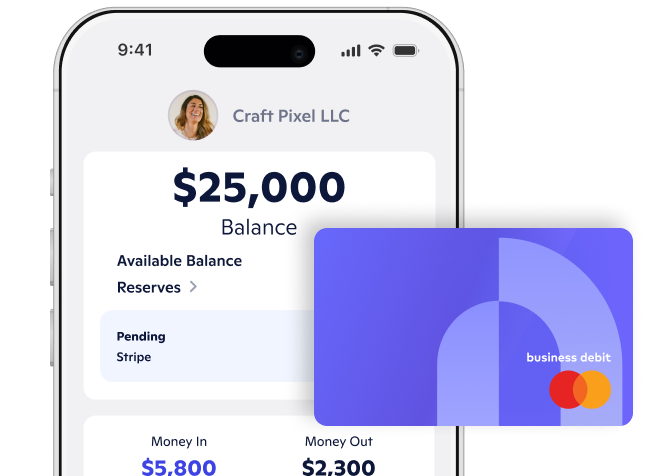
s you navigate each step of starting, growing, and managing your business, you’ve likely experienced – and will continue to experience – a whole host of “firsts.” You may have questioned yourself along the way and wondered if you were even meant to be on your current path. You're not alone if you’ve found yourself seriously doubting your abilities or feeling like you’ve faked your way to where you are. Imposter syndrome among entrepreneurs and small business owners is more widespread than you might expect. Read on to learn more about imposter syndrome and how you can overcome it as an entrepreneur.
What is Imposter Syndrome?
While it’s important to note that imposter syndrome is not a recognized mental health disorder, it’s still a common phenomenon among business owners and other professionals across gender, age, and industry. Imposter syndrome involves questioning if you are deserving of your accomplishments and accolades.
You may be susceptible to imposter feelings as a small business owner and entrepreneur. High-achieving individuals and successful people are among the most likely to experience imposter syndrome. This is because you may put yourself under pressure to achieve success. With this can come countless feelings of self-doubt or fraudulence, perfectionist tendencies, negative thoughts, burnouts, or a lack of self-confidence. All of these feelings fall under the umbrella of imposter feelings.
A study by Kajabi found critical data behind the imposter phenomenon among entrepreneurs and small business owners that showcases just how prevalent it is. After surveying over 600 entrepreneurs and small business owners, they found that:
- Eighty-four percent of entrepreneurs and small business owners experience imposter syndrome.
- Over 20% of entrepreneurs are worried about being “found out” for lack of knowledge or ability.
- Over 20% of business owners feel their success is due only to luck.
While these findings may seem daunting, all hope is not lost. There are many ways to deal with imposter symptoms and become your most confident self.

4 Steps to Overcome Imposter Syndrome
Understand Imposter Syndrome
The first step to overcoming imposter syndrome is to understand it. Many studies show that encouraging entrepreneurs and small business owners to comprehend their imposter feelings better helps them reach their highest potential. Many references exist to help entrepreneurs cope with the phenomenon, specifically the work of renowned psychologist Dr. Pauline Rose Clance. Dr. Clance specializes in helping her patients and individuals cope with their imposter feelings by approaching their struggles with less judgment and more compassion. Her book, Imposter Phenomenon, is a beneficial tool for better understanding imposter syndrome and minimizing feelings of inadequacy and negative self-talk.
Release Yourself from Perfectionism
Perfectionism and imposter syndrome tend to go hand-in-hand. Perfectionism is the tendency to hold yourself and your work to such a high standard that it must be perfect. It’s closely tied to fear of failure or fear of making mistakes. While this may initially seem like an excellent quality, it can inhibit you from ever completing projects and significantly increases feelings of self-doubt when work is not “perfect” all the time. This attitude and pattern of behavior ultimately undermine your self-confidence. Over time, perfectionism can lead to a snowball effect that eventually prevents any of your hard work from coming to fruition. While it’s great to hold yourself and your work to high standards, check-in with yourself and consider recalibrating your ideals for a healthier, more balanced, and ultimately more productive approach to your work.
Celebrate Your Achievements, Even the Small Ones
Be kind to yourself. Actively concentrate on replacing any negative self-talk with words of encouragement. Acknowledging your achievements, no matter how small, is necessary to combat your feelings of self-doubt or your lack of self-confidence. Unfortunately, imposter syndrome causes entrepreneurs to underestimate or ignore their achievements and successes, resulting in feelings of inadequacy.
Fight the urge to brush off your success if you struggle with imposter syndrome. In fact, it's constructive to celebrate all of your milestones, even the small ones. Perhaps you’ve successfully launched your first ad campaign after weeks of preparation, or maybe you’ve spent the morning calculating your estimated taxes for the first time. Both of these achievements are worth recognizing. Leverage your current successes as motivation for future, even bigger ones.
Motivation can also take the form of rewarding yourself when you achieve specific goals. Rewards can look different for many, whether a gift to yourself or some time for non-work-related endeavors.
Documenting and saving any awards or positive feedback from peers is a small but effective reminder of your ability to achieve your goals, ultimately helping you internalize your success. You can make a folder in your Photos app to keep all of the recognition in one place, or you can even use a physical folder.
Talk About Your Feelings
Accepting and discussing your struggle with negative feelings as they come up is one of the best ways of dealing with imposter syndrome. Being vocal and honest with yourself and others is necessary to become the best version of yourself professionally and even personally. Orlando Baeza, CMO of Kajabi, explains that “imposter syndrome can be such a heavy subject and barrier to success for many people. And since it’s perceived as taboo by many, people dealing with imposter syndrome simply don’t feel comfortable talking about their struggles with it. The biggest downside is feeling isolated and as though you don’t have a community to turn to or resources for how to move past it.”
The New York Times discusses how high-achieving women such as Tina Fey, Maya Angelou, and Michelle Obama have publicly spoken about their struggles with imposter syndrome. Communicating with other small business owners about it can be cathartic. It’s also an excellent opportunity to learn from and connect with others in similar fields.
Journaling is another good way to release your feelings. Writing out how you feel is an outlet to recognize and work through the emotional or material challenges you face. According to a study published in the Journal of Personality and Social Psychology, taking a positive affirmation and adding your name to it (i.e., “Jordan is successful”) can have a powerful effect on how you perceive yourself. Writing daily affirmations also helps remind yourself of your ultimate potential.
Professional help through therapy is also a viable option to pursue. The more conversations that arise discussing imposter syndrome, the more normalized the phenomenon will become, allowing entrepreneurs to better overcome it with awareness and compassion.
The Takeaway
As a business owner, you may find that imposter syndrome sometimes feels overwhelming or even paralyzing. Recognize that you aren’t alone in feeling this way and that it’s even normal to feel this way. Then, take concrete steps to combat and prevent it from impeding your success. Visualizing your success, being kind to yourself, and reminding yourself that you are great at what you do will help transform your mentality over time so you can reach your full potential and achieve your business goals.
This page is for informational purposes only and is not intended to be relied upon as legal, financial, or accounting advice. Please consult your own professional if you have any questions.






